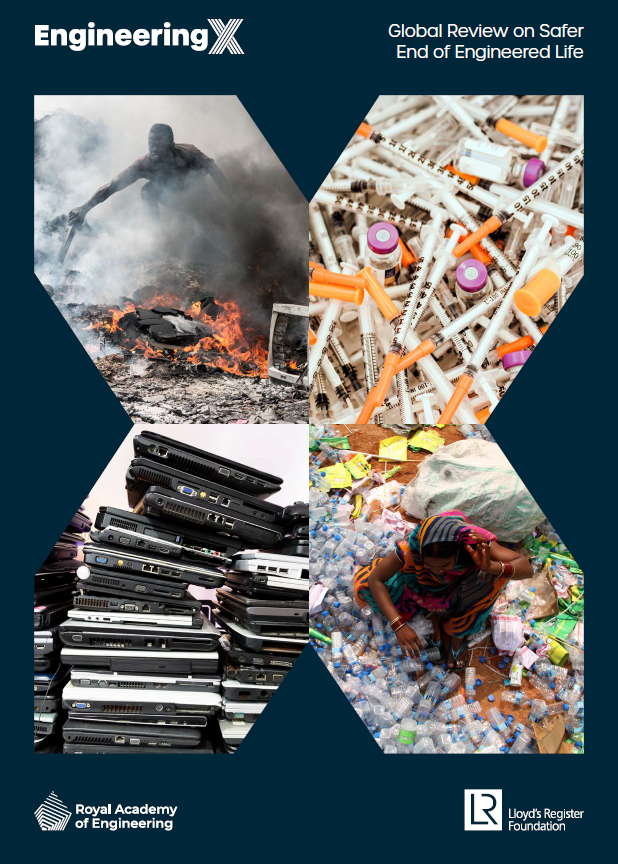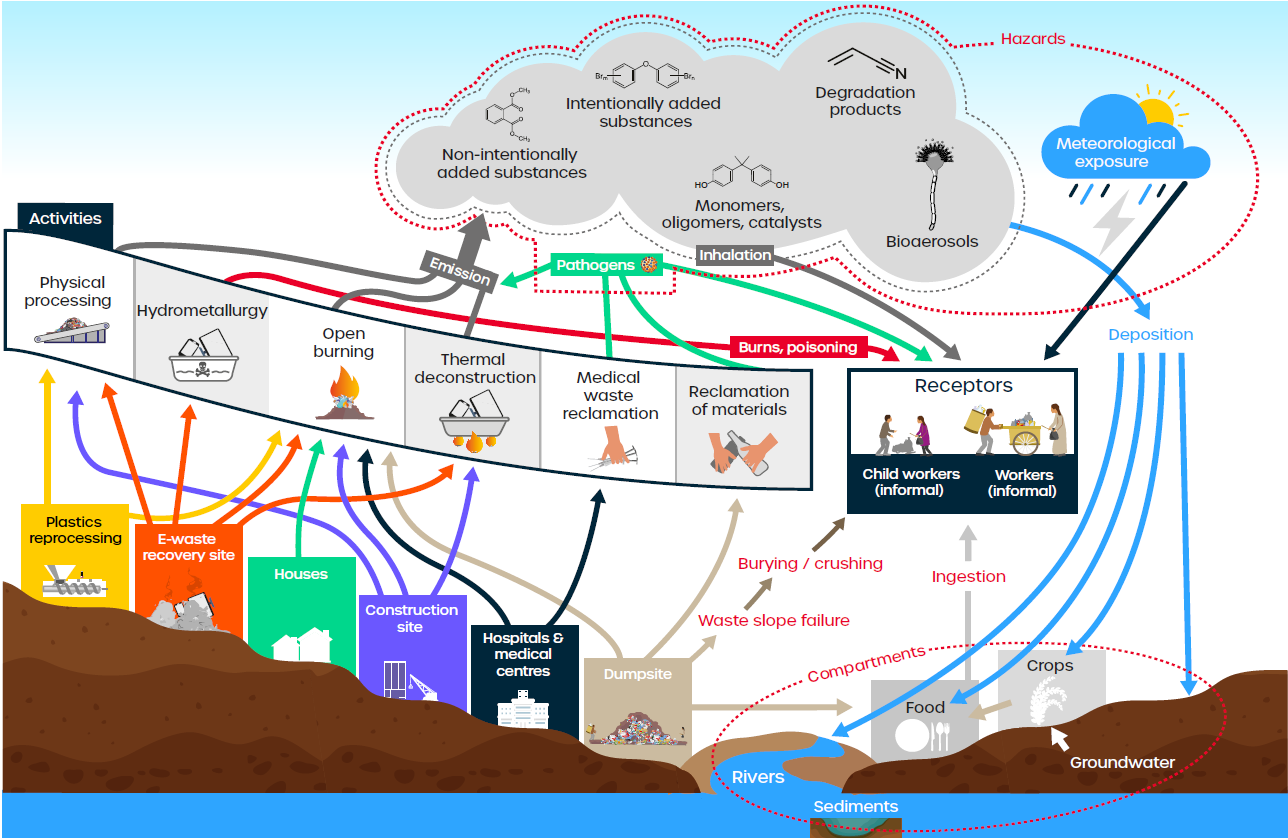Home
The mismanagement of solid waste threatens the health and safety of billions worldwide, many of whom have no waste collection service. Faced with this lack of service provision, people have to self-manage waste by burying, scattering on land or dumping it into waterways and coastal waters. More often than not, waste is burned in open, uncontrolled fires, resulting in the emission of a large number of potentially hazardous substances that affect public and occupational health.
NEW - Check out our latest report - Global Review on Safer End of Engineered Life - published by the Royal Academy of Engineering

Our research seeks to understand the impact of solid waste on people's health when it is mismanaged through the exploration of hazard-pathway-receptor combinations that reflect the experiences of people who may be exposed.

Conceptual pathways through which receptors may be exposed to hazards from the mismanagement of waste
Of all those who are exposed to the negative by waste, the informal recycling sector, waste pickers are affected the most. This large group, possibly 11 million strong, are particular vulnerable to exposure to hazardous substances and pathogens in waste as well as from direct ballistic contact due to their close interaction with waste piles of unknown composition, often with no personal protective equipment. Our work on integration of the informal recycling sector proposes a framework for recognition and acknowledgement of waste pickers into formal, municipal waste management plans, thereby opening the door to safer systems of work and mitigation of stigma and lack of acceptance experienced by informal waste workers.
A short explanation of our approach to this project bis provided in the video below.
